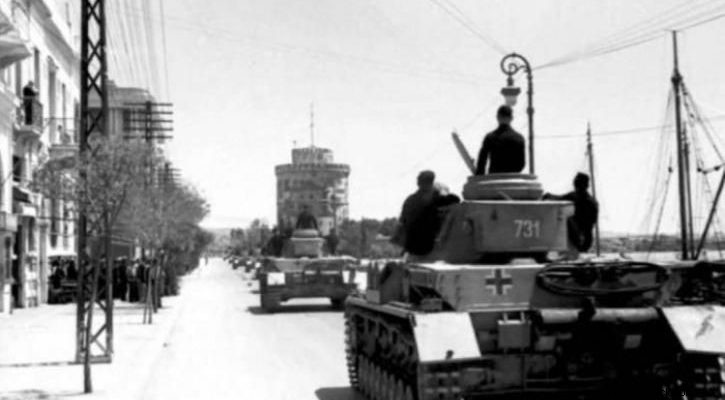
"The savior of Thessaloniki" is the title of an article in the Süddeutsche Zeitung about Georg Eckert, who "in post-war Germany was a highly respected scientist, educator and historian, he was also President of the German Commission for UNESCO". During the Second World War, he was 28 years old serving in Thessaloniki, "the Jerusalem of the Balkans, as they called it then". The young ethnologist is fascinated by Greece and its people, until he thinks of moving there after the war.
Christiane Schletcher notes in her article:"This is due to personal meetings and deep friendships with Greeks, which the young German soon cultivates more and more intensively. These friends introduce him to everyday life in Greece... He experiences how the Greeks starve, learns about their fears. The friends finally brought him into contact with the left-wing Greek resistance, with the guerrilla army of ELAS. Eckert then makes a decision as serious as it is courageous. Shortly before the withdrawal of the Wehrmacht, together with a small group of loyal Germans, they joined the left-wing resistance movement ELAS. Identity card issued by ELAS with photo, dated November 18, 1944".
On the side of the Greeks
And a little further on the article notes:“Eckert also has a special role, which is highlighted by Metsing's biographer. He uses his influence, which he apparently still has as a Wehrmacht official with the rank of major in the circle of senior German officers - in collusion with the Greek resistance movement - to prevent further destruction of Thessaloniki by the retreating conquerors.
In return, ELAS would refrain from attacking the defeated German troops. Greek sources also reported this later. However, the evacuation is not completely without explosives, an oil depot is burning, ships are sinking... Vital infrastructure such as the power station, water works and an important wharf at the port are however saved, "as a result of Eckert's negotiations with ELAS" according to with researcher Metsing.
SOURCE:DW
